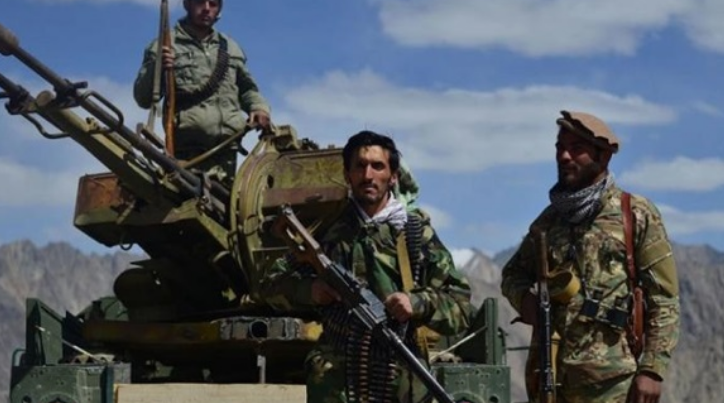Mohamed Yosry
Since the first day of the Taliban’s rise to power and its control over the Afghan capital, the opposition factions began to think of mechanisms to rein in the movement, or at least participate in ruling by any means so that it would not hold the fate of the country alone. This began with negotiations with the opposition leaders in Panjshir, led by Ahmad Masoud, the son of prominent Afghan leader Ahmad Shah Masoud, who seeks to complete his father’s career. But these negotiations failed, which led to armed clashes between the opposition and the Taliban in the ever-inflamed Panjshir province.
Opposition demands
Since the rise of the Taliban, Panjshir has witnessed fierce resistance by the opposition factions led by Masoud, who entered into negotiations with the movement, during which conditions were set that the Taliban considered exaggerated, including obtaining a percentage of government seats in the Taliban government, as well as presenting the names of government members to the opposition. In addition, Panjshir is considered a safe area that the Taliban should not enter.
On September 1, the Afghan Tolo TV reported, quoting senior Taliban leader Amir Khan Muttaqi, that talks between the movement and the resistance leaders in Panjshir had failed, explaining that the movement had appointed a governor for the province.
Parallel government
In the midst of this atmosphere, the idea of a parallel opposition government was already present in the opposition’s mind. The National Resistance Front (NRF) in Panjshir stated that it would announce a parallel government after consulting with politicians in response to the new government announced by the Taliban.
In statements published by the Afghan Khaama Press Agency on September 8, the NRF described the Taliban’s caretaker government as illegitimate and a real enemy to the people of Afghanistan.
In its statement, the NRF renewed its resistance against the Taliban and added that the Taliban poses a threat to the region and the world, calling on the United Nations, the UN Human Rights Council, the European Union, the Shanghai Cooperation Organization, the Economic Cooperation Organization and the Organization of Islamic Cooperation to stop cooperating with the Taliban.
Meanwhile, the Taliban demanded the international community to recognize its government and to accept Taliban spokesman Suhail Shaheen as its permanent representative to the United Nations. Despite these efforts, the idea of establishing a parallel government to the Afghan opposition returned less than a week after these demands.
At the same time, the leaders of the Afghan armed resistance against the Taliban announced once again that they are seeking to form an anti-Taliban government in exile, in cooperation with prominent figures in the previous government after they all left the country.
In a report published on September 24, Foreign Policy magazine stated that politicians, ministers and parliamentarians from the government of former President Ashraf Ghani, in addition to prominent military figures, are in Tajikistan and are seeking financial and military support to strengthen official opposition against the rule of the Taliban.
Ambiguous future
The Taliban was not able to obtain its desired international recognition or the appointment of Shaheen as permanent representative of its government at the United Nations, which makes it illegitimate in the eyes of the international community, amid the reluctance of the movement’s allies or supporters to recognize it until now.
This comes in light of the escalation of talk about a parallel government abroad whose influence may extend to the agents of the entities affiliated with these calls at home who are loyal to them, which casts a shadow of ambiguity on the Taliban’s government and stands as a stumbling block in its complete control over the country as it dreams.








































admin in: How the Muslim Brotherhood betrayed Saudi Arabia?
Great article with insight ...
https://www.viagrapascherfr.com/achat-sildenafil-pfizer-tarif/ in: Cross-region cooperation between anti-terrorism agencies needed
Hello there, just became aware of your blog through Google, and found ...